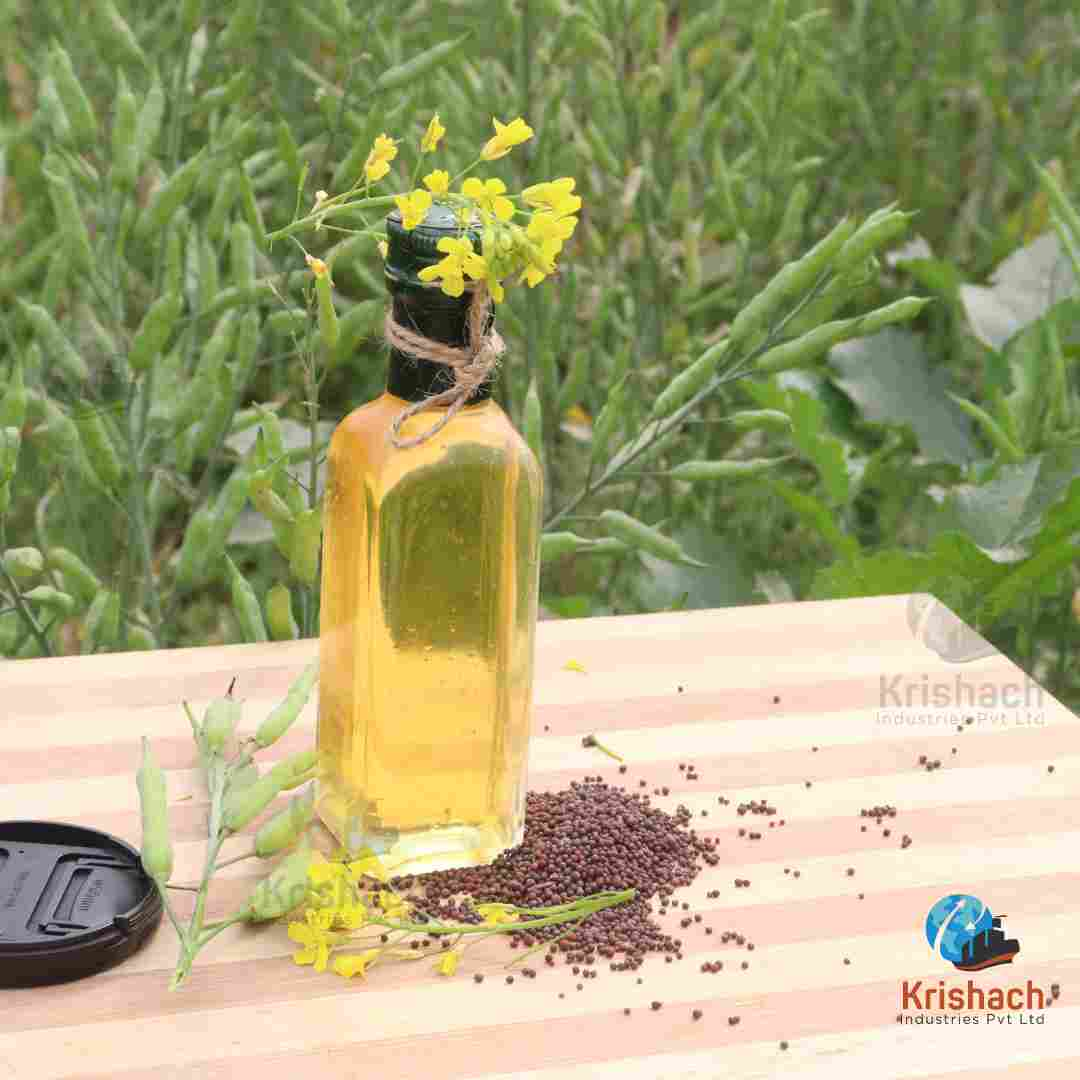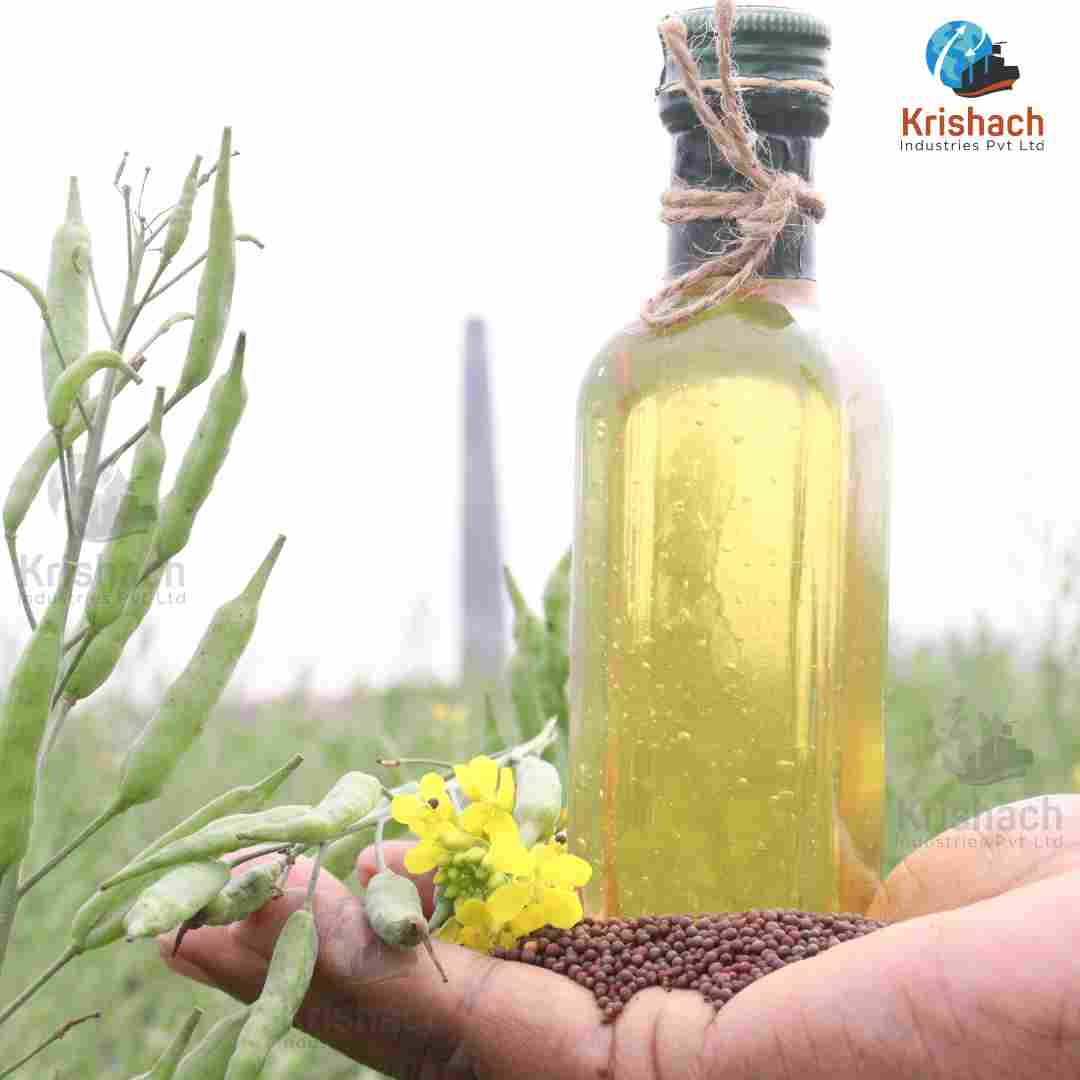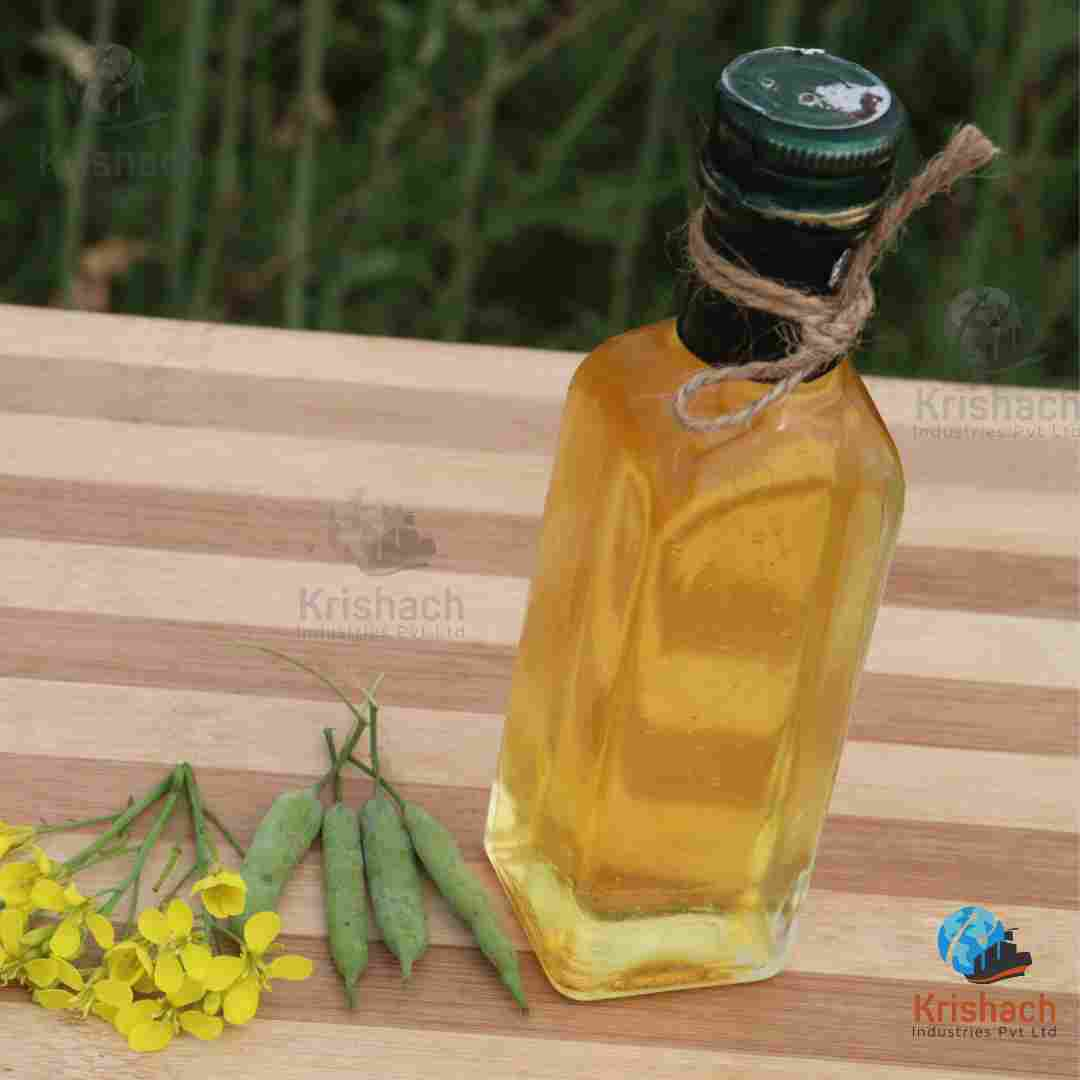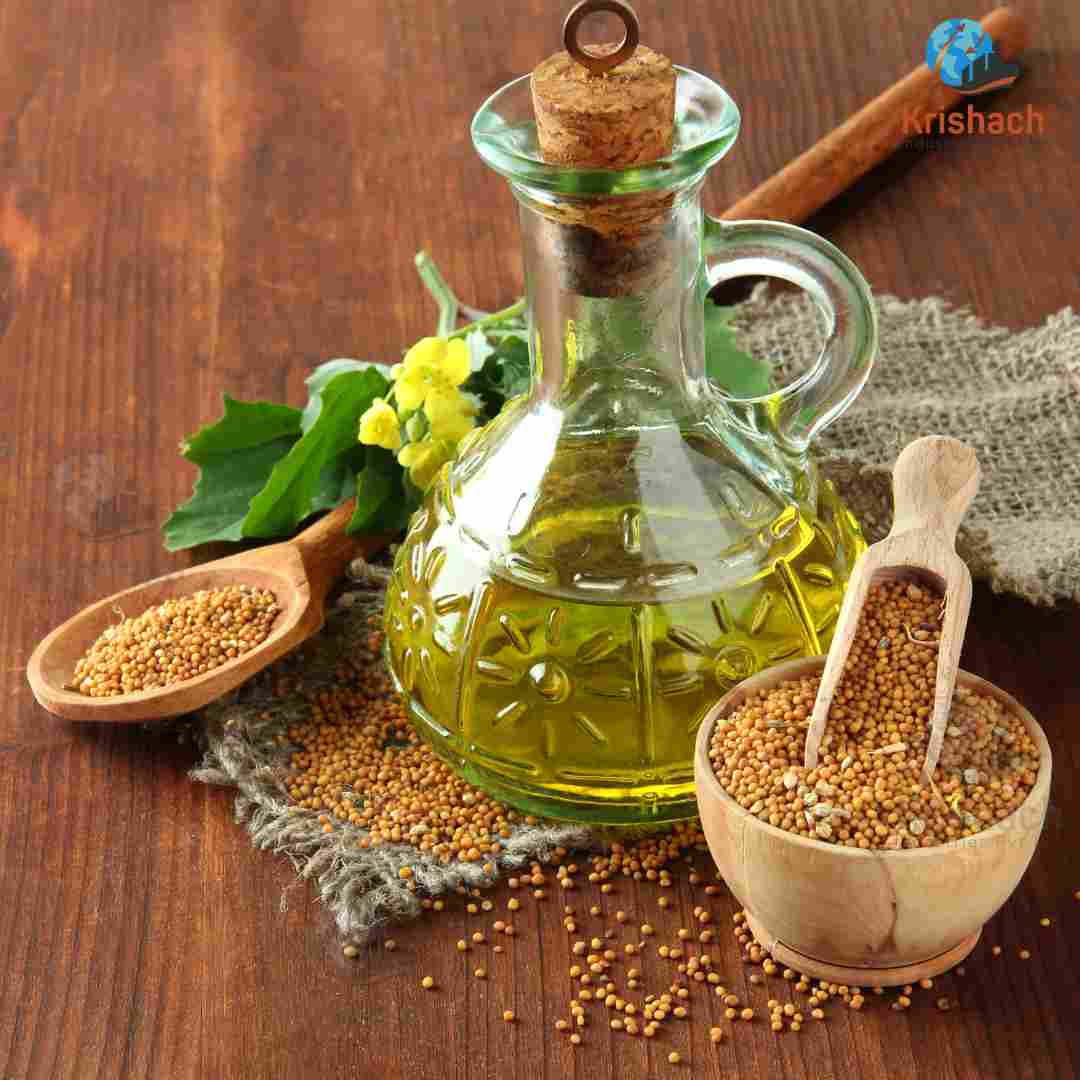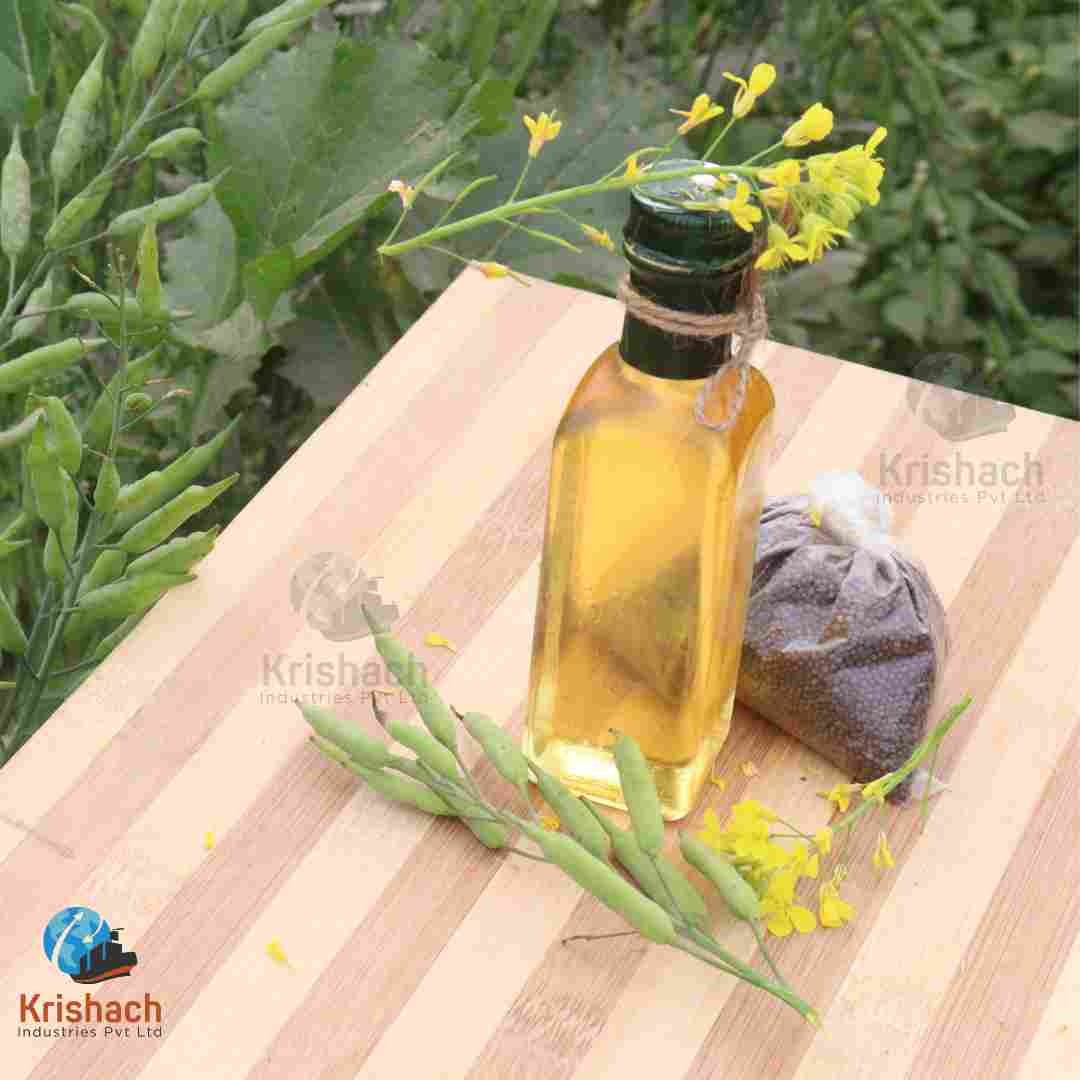Mustard oil is a pungent, flavorful oil extracted from the seeds of the mustard plant (Brassica species), commonly used in Indian, Bangladeshi, and other South Asian cuisines. It is known for its sharp, spicy taste and strong aroma, making it a key ingredient in regional cooking, especially for frying, pickling, and marinades. In addition to its culinary uses, mustard oil is also valued in traditional medicine and massage therapy for its numerous health benefits.
Key Characteristics:
Appearance: Mustard oil typically has a golden yellow to amber color, which may darken slightly over time.
Texture: It is slightly thick and viscous compared to other cooking oils, but still smooth and easy to spread or use for cooking.
Aroma: Strong, sharp, and slightly nutty, with a peppery scent that intensifies when heated.
Flavour: Pungent and spicy with a bitter, slightly peppery aftertaste. This distinct flavor adds depth to dishes, especially in Indian cooking.
Specification:
Culinary Uses:
Cooking: Mustard oil is widely used for frying, sautéing, and deep-frying, especially in Indian and Bengali cuisines. Its strong flavor enhances dishes like curries, stir-fries, and chutneys.
Pickling: Its natural preservative properties make mustard oil a popular choice for pickling vegetables and fruits, as it prevents spoilage and adds a distinct tangy flavor.
Marinades: Mustard oil is commonly used to marinate meats and vegetables, imparting its sharp flavor and tenderizing the ingredients.
Traditional and Medicinal Uses:
Massage Oil: Mustard oil has been traditionally used for body massages to improve circulation, relieve muscle stiffness, and nourish the skin.
Ayurvedic Practices: It is used in Ayurveda for its warming and detoxifying effects, believed to promote balance in the body and mind.
Nutritional Profile:
Mustard oil is rich in monounsaturated and polyunsaturated fatty acids, including Omega-3 and Omega-6, which are essential for heart health. It also contains a high amount of erucic acid, which gives it its characteristic pungency. Additionally, mustard oil has antioxidant and anti-inflammatory properties due to its natural compounds such as allyl isothiocyanate.
Health Benefits:
Heart Health: The unsaturated fats in mustard oil may help lower bad cholesterol (LDL) levels while increasing good cholesterol (HDL), which supports heart health.
Anti-inflammatory Properties: Mustard oil has traditionally been used for massages and treating joint pain or inflammation due to its warming effect and anti-inflammatory compounds.
Skin and Hair Care: In traditional practices, mustard oil is applied to the skin and scalp for moisturizing, promoting hair growth, and improving circulation.
Our Services
Reliable Sourcing:
Reliable sourcing of mustard oil begins with selecting high-quality mustard seeds, primarily from regions known for their superior mustard production, such as Rajasthan, Uttar Pradesh, Haryana, and Punjab in India. These regions have ideal soil and climatic conditions for growing the three main varieties of mustard seeds—yellow, brown, and black. Partnering with farmers who employ sustainable and organic farming practices ensures that the seeds are non-GMO and free from synthetic pesticides and fertilizers. Direct sourcing from these trusted growers helps maintain a consistent supply of premium-quality mustard seeds with high oil content, which is essential for producing high-grade mustard oil.
Premium Quality Assurance:
Ensuring premium quality in mustard oil production requires adherence to strict quality control measures at every stage. The seeds undergo rigorous testing to confirm they are free from contaminants like pesticides, heavy metals, and microbial agents. Certifications such as ISO, HACCP, FSSAI, and organic certifications help validate the product’s purity and quality. The oil is also tested for its erucic acid content to meet international safety standards. Proper extraction methods, such as cold pressing, preserve the oil’s natural nutrients, pungency, and flavor while maintaining its health benefits. The oil’s physical attributes, such as its color, aroma, and viscosity, are carefully monitored to ensure they meet the highest standards for both culinary and medicinal uses.
Processes:
The processing of mustard oil begins with the careful cleaning and sorting of mustard seeds to remove any impurities, dirt, or foreign matter. After cleaning, the seeds are dried to ensure optimal moisture levels for extraction. Cold pressing or mechanical expeller pressing is typically used to extract the oil without excessive heat, preserving its natural properties, including its strong aroma and flavor. The extracted oil is then filtered to remove any remaining sediments and impurities. Throughout this process, the oil is monitored for its pungency, color, and viscosity to meet quality standards. After extraction and filtration, the oil is stored in food-grade, airtight containers to preserve its freshness and prevent oxidation. The final product is then packaged and distributed, ensuring it retains its flavor, nutrients, and purity until it reaches the consumer.
Packaging, Shipping & Delivery
Glass Bottles:
For retail and premium segments, mustard oil is commonly packed in glass bottles ranging from 250 ml to 1 liter. Glass helps preserve the oil’s flavor, aroma, and nutritional value while offering a high-quality, premium appearance. These bottles are typically sealed with tamper-evident caps to ensure freshness and prevent contamination.
PET/HDPE Plastic Bottles:
For larger retail quantities, plastic bottles made from food-grade PET or HDPE are used for packaging sizes ranging from 500 ml to 5 liters. These bottles are lightweight, durable, and resistant to damage during transportation. Tamper-proof caps or spouts are used for ease of pouring and preservation.
Tin Cans:
Mustard oil for export or bulk use is often packaged in 15-liter or 5-liter tin cans. These metal containers provide excellent protection from light and air, ensuring the oil’s freshness and long shelf life, especially during long-distance transport. Tin cans are strong and durable, making them ideal for large-scale distribution.
Drums and Barrels:
For industrial or large-scale use, mustard oil is packed in large food-grade drums or barrels, typically made of stainless steel or HDPE plastic, ranging from 50 liters to 200 liters. These containers are used for export or wholesale distribution and ensure the oil remains uncontaminated during transit.
Vacuum-Sealed Pouches:
In smaller retail quantities, mustard oil can also be packed in vacuum-sealed pouches to prevent oxidation and preserve its freshness. This type of packaging is lightweight and ideal for travel-size portions.
Carton Boxes and Palletization:
Once bottled or canned, the mustard oil containers are packed in corrugated cardboard boxes for extra protection during transportation. For large exports, these boxes are palletized and wrapped with stretch film or shrink wrap to ensure stability and safety during shipment. Palletization makes the handling of large quantities easier and reduces the risk of damage.
Export Documentation:
Handle all necessary export documentation, including phytosanitary certificates, certificates of origin, and any specific certifications required by the importing country.
Efficient Shipping:
Partner with reliable freight forwarders and logistics companies to ensure timely and safe delivery of goods. Offer multiple shipping options (air, sea, or land) based on customer preferences.




